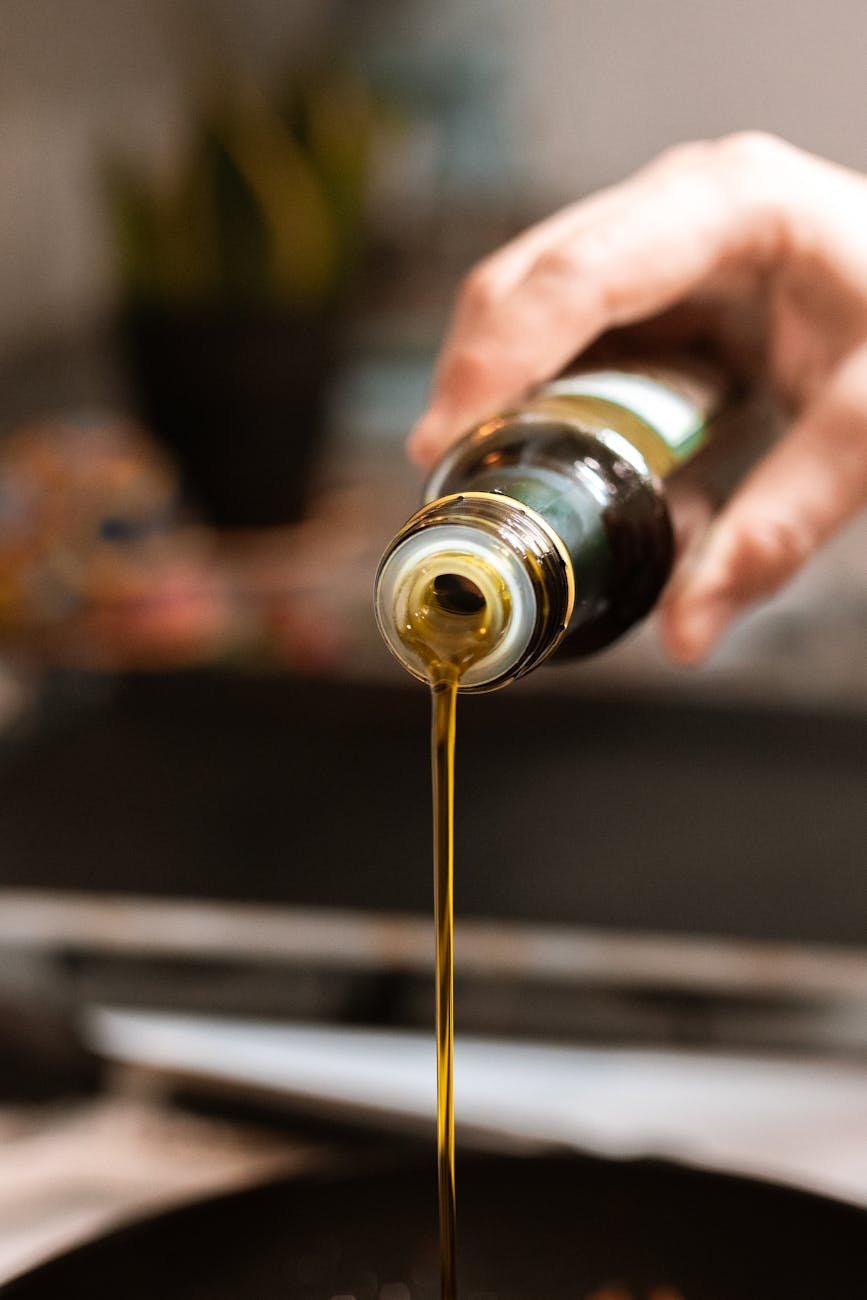Importance of Dietary Fats
Did you know that fats aren’t just about taste and texture—they’re like the unsung heroes for your gut? Those healthy fats are keeping things running smoothly down there, making sure your tummy is in tip-top shape. From helping you soak up those important vitamins to being an energy storage whiz, fats are doing more behind-the-scenes work than you’d imagine. Let’s have a chat about why these oily buddies are such big players in keeping your gut in check.
Role of Healthy Fats
Your gut’s got a tough job: it’s the gatekeeper, deciding what gets to stay and what has to go. Healthy fats are there like the loyal guards, keeping that gut lining strong as steel. This intestinal barrier is like the moat around a castle, defending against all the nasties trying to cause trouble. So, when you chow down on healthy fats, you’re reinforcing the fortress, making sure your gut stays in prime condition.
Impact on Gut Health
All fats are not painted with the same brush. Take monounsaturated fats, for instance, like the ones in olive oil. They’re the friendly neighbours, encouraging good bacteria to flourish in your gut community.
Then you have trans fats, the troublesome neighbours. Mostly lurking in processed munchies, these guys stir up chaos, messing with your microbiome balance and sparking gut inflammation.
Knowing the good from the bad fats is like having the map to gut health treasure. Stick with the good guys, ditch the baddies, and your gut will thank you.
If you’re wondering how to sneak more of these heroes into your meals without turning your kitchen upside down, our guide on adding healthy fats to your gut-friendly menu is just the trick. Give your gut some love, and it’ll return the favour by keeping everything balanced and happy.
Types of Healthy Fats
Trying to keep your gut smiling? One way is by adding the right fats to your meals. Knowing the difference between monounsaturated fats and polyunsaturated fats can get you on the fast track to better gut health.
Monounsaturated Fats
Fancy some avocados or nuts? You’re in for a treat. Monounsaturated fats (MUFA) help your gut by encouraging good gut bacteria to flourish. That’s a win-win for sure. Foods like extra virgin olive oil and crunchy tree nuts not only help your belly but also show some love to your heart and sugar levels. They keep the bad cholesterol in check, boost the good kind, and help steady your blood sugar (Mayo Clinic).
Take the avocado, for instance. It’s loaded with oleic acid, plenty of fibre, and potassium. Sounds like a superfood, right? It doubles up as an anti-inflammatory agent, keeps the big C at bay, and even does wonders for your eyes (Medical News Today). Monounsaturated fats also have one unsaturated bond, which means they’re usually runny at room temp but decide to firm up when you pop them in the fridge. They’re an ace in the hole for a healthy diet.
Polyunsaturated Fats
Now, about those polyunsaturated fats. They’re pretty vital for keeping the engine running smoothly. You’ll find these fats in your favourite fish like salmon, mackerel, and sardines, as well as in a variety of seeds and nuts.
Bounce back from bad cholesterol with the help of polyunsaturated fats, giving your heart a break by lowering the risk of trouble down the road. Omega-3s, a type of these fats from fish, keep the brain sharp and inflammation under control (Harvard T.H. Chan School of Public Health).
Mix and match these healthy fats in your daily grub to cheer up your gut, protect your heart, and just feel darn good. Get a head start with dishes rich in these potent fats and hold on to a balanced diet for optimal health. If you’re eager for more scoop on fats keeping your digestion smooth, catch our article on foods rich in healthy fats for better digestion.
Sources of Healthy Fats
Looking to keep your tummy in tip-top shape? Adding the right kind of fats to your diet is a win-win! Good fats are like health superheroes, swooping in to support your overall body, including your gut. We’ll chat about two main groups: ones that come from plants and ones that come from fish.
Plant-Based Sources
Plants have got your back with a bunch of healthy fats that help your tummy and your whole body feel great. Grab some walnuts, flax seeds, chia seeds, soybeans, avocados, and olives whenever you can (UCLA Health). You can also pour a bit of oils like olive, safflower, corn, sesame, canola, walnut, and soybean into your meals – they’re packed with fats that do wonders for your gut’s tiny helpers.
| Plant-Based Source | Healthy Fats Goodness |
|---|---|
| Walnuts | Mono Fats, Omega-3 |
| Flax Seeds | Omega-3 |
| Chia Seeds | Omega-3 |
| Soybeans | Poly Fats |
| Avocados | Mono Fats |
| Olives | Mono Fats |
| Vegetable Oils (e.g., Olive) | Mono Fats |
| Vegetable Oils (e.g., Soybean) | Poly Fats |
Fish-Based Sources
Gotta love fish! They hook you up with omega-3s, which are like little helpers for brain power, skin glow, strong bones, and your metabolism. Catch some tuna, salmon, mackerel, whitefish, herring, and sardines to fill up your meals with this goodness.
Eating fish twice a week is like giving your heart a high-five, especially if your heart needs a little extra love. Oysters, mussels, and certain fish eggs also bring some tasty fats to your table. They’re not just good for your gut; they’re packed with nutrients that make your whole body say “thank you.”
By juggling these plant and fish fats in your daily foods, you’ll keep your insides happy and balanced. Mix and match fat-packed goodies to make tasty meals that’re as good for you as they are delicious. Curious about more ways to slip these fats into your diet? Check our guide on how to include healthy fats into your diet for gut health.
Incorporating Healthy Fats
If you’re looking to keep your tummy happy, choosing the right fats for your diet is pretty important. We’ve gathered some straightforward advice on how much fat you should be eating, along with some handy tips to help you build a diet that supports your gut health.
Guidelines for Fat Intake
According to the American Heart Association, they reckon you should aim for only 5% to 6% of your daily calories from saturated fats if you want to cut down on heart disease risk. Getting rid of those extra saturated fats can’t hurt and might just do wonders for how you’re feeling overall.
Now, for the good stuff—when adding those healthier fats to your meals, think olive oil and nuts, they’re packed with monounsaturated fats. These fats are like the knights in shining armor for your heart and can help regulate blood sugar, too. They knock down the bad cholesterol, lift up the good one, and keep your glucose levels in check.
Let’s not forget omega-6 fatty acids, the kind you get when you swap out saturated fats. You can find these in oils made from soybeans, corn, sunflowers, safflowers, and canola. Giving these healthy fats a go means you’re doing what’s right by your gut and keeping your diet nicely balanced.
Practical Tips for a Balanced Diet
When you set up your meal plan with your gut health in mind, try to include unsaturated fats from vegetables, nuts, and fish. These fats are your heart’s best friend and are generally good for the whole you. They’re a great stand-in for the nasty saturated and trans fats in your diet, and they help keep your meals all-around nutritious.
Stock up on foods with monounsaturated fats like olive oil and avocados as part of your mission to revamp your fat intake. These fats are pretty nifty as they’re liquid when left on the counter but harden up in the fridge, making them the ideal, flexible ingredient for cooking up a storm. By hopping on the healthy fat train, you’re setting yourself up to meet your body’s diet needs and show your gut some much-needed love (WebMD).
By sticking with these fat guidelines and putting some of these practical tips into action, you’ll end up with a meal setup that takes care of your gut and boosts your overall health. Don’t forget, the fats you pick and how you balance them in your diet make a huge difference in how your guts work, and keeping them happy means you’re more likely to feel good, too.


